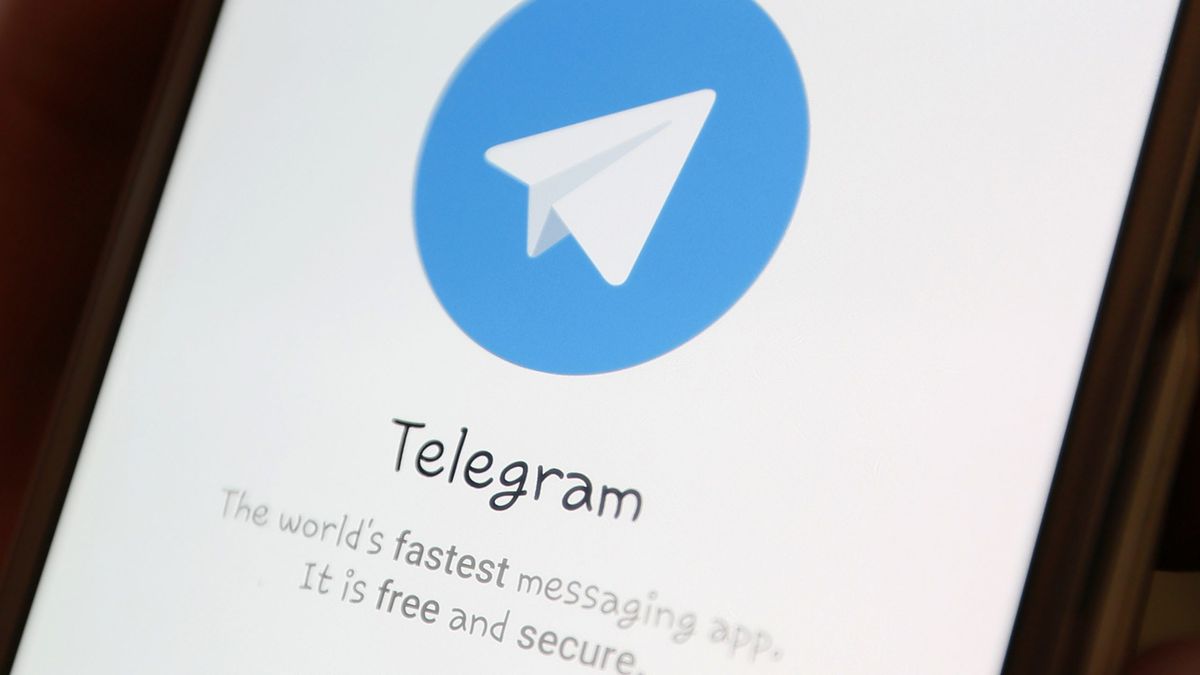Telegram is becoming a new haven for QAnon, even as Trump leaves office

A few minutes every morning is all you need.
Stay up to date on the world's Headlines and Human Stories. It's fun, it's factual, it's fluff-free.
With Trump banned from major social media platforms and Parler shut down (possibly only temporarily), conservatives and conspiracy theorists are flocking to other platforms and social networking apps.
Anyone familiar with QAnon, the far-right conspiracy theory that pitted former President Donald Trump against an alleged “Deep State” and cabal of Satanic pedophiles might be forgiven for presuming January 20, 2021, was a rude awakening for the movement. After all, Trump left office having delivered on none of the major predictions of the anonymous poster known only as “Q.”
Doubtlessly there are some QAnon adherents who have grown disillusioned with the movement after more than three years of unfulfilled promises, culminating in Trump’s contentious exit from the White House. The Deep State has not been exposed or dismantled, former Secretary of State Hillary Clinton is not behind bars and a mass roundup of Democrats and Hollywood elites has not occurred.
Belief systems are not so easily undone, though, and QAnon, which has often been described as a cult, appears primed to outlast Trump. Its mix of pseudo-religious imagery and vague prophecies that invite personal interpretations all but ensures QAnon will continue for many more years, potentially even evolving into a genuine religious movement.
QAnon, which was born online and has spread through social media, has faced resistance, mostly by platforms like Facebook and Twitter that have sought (perhaps too late) to stop its spread. For a time, QAnon was finding an audience on Parler, the conservative-courting social media platform, but that site’s recent struggles has cut off yet another one of the movement’s outlets.
That is likely only a temporary setback, though. With Trump banned from major social media platforms and Parler shut down (possibly only temporarily), conservatives and conspiracy theorists are flocking to other platforms and social networking apps. One such platform is Telegram.
The rise of Telegram
Telegram is a messaging app that works like a cross between WhatsApp and Facebook groups. In the wake of recent revelations that WhatsApp, which is owned by Facebook, shares user data with its parent company, users have been flocking to Telegram. Telegram, like WhatsApp, offers secure user-to-user communication, but also includes public chat channels.
On January 12, Telegram reported having more than 500 million active users, including 25 million new users in the previously 72 hours. Telegram launched in August 2013 and it took until March 2018 for the app to reach 200 million users. So achieving an eighth of that growth in a three-day period was a major milestone (new Telegram users are greeted by a message heralding its 500 million users).
Among those new signees is a raft of disaffected social media users who have abandoned other platforms in protest of what they see as censorship of their views. Those views include the Trump-backed lie that the 2020 presidential election was stolen by President Joe Biden, as well as QAnon-based conspiracy theories.
QAnon on Telegram
One QAnon-dedicated channel, “Q- Drops, 8 Bakes & Crumbs” (a reference to the “crumbs” or hints left in Q messages – or Q drops – that are meant to be followed to figure out what is going on), already has over 25,000 subscribers. Like the QAnon groups that once proliferated on Facebook, this channel is full of conspiracy-heavy memes and references that only the well-initiated will understand.
Among the pinned messages in the channel is a poll asking if members think Biden will be arrested on January 20 (a common theory among QAnon followers who still believe Trump will remain the president). 60% of the respondents answered “Yes,” 16% answered “No,” while the remaining 24% chose “I don’t know.”
Telegram, which was founded by Russian billionaire Pavel Durov, has an international clientele, meaning QAnon’s reach on the app extends beyond the United States.
There are already multiple QAnon-related Spanish-language channels, including ones dedicated specifically to Spain and Peru. There is also a German QAnon channel with nearly 19,000 subscribers. QAnon has been welcomed by Germany’s far-right fringe and QAnon signs have appeared at anti-lockdown protests in the country.
Trust the plan
Keeping the faith in QAnon even as Biden is inaugurated into the presidency requires a disconnection from real-world events and absolute confidence in the Q mythology. On top of the claims of a Satanic sex trafficking cabal, the QAnon mythology frequently incorporates antisemitic rhetoric and skepticism toward official reporting on a variety of topics, including the COVID-19 pandemic.
Another hallmark of QAnon, one that helps explain why it persists, is its message of in-group inclusivity. Many people find companionship in the group (even if only digitally), which is especially beneficial as there are many stories of adherents losing friends and family because of their beliefs.
While some might be inclined to dismiss QAnon as a ridiculous online conspiracy theory, it is worth emphasizing that the deadly January 6 attack on the US Capitol was led, in part, by QAnon adherents who believed they were defending their country and Trump.
One of the most visible figures during the insurrection attempt was Jacob Chansley, also known as Jacob Angeli or the “QAnon Shaman.” Photographed in face paint, horns and a fur headdress, Chansley has been arrested and charged by the federal government with attempting to kidnap and assassinate government officials, including Vice President Mike Pence.
Have a tip or story? Get in touch with our reporters at tips@themilsource.com




Comments ()